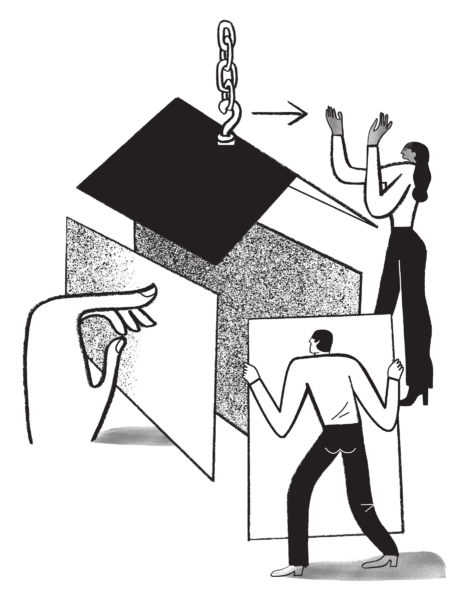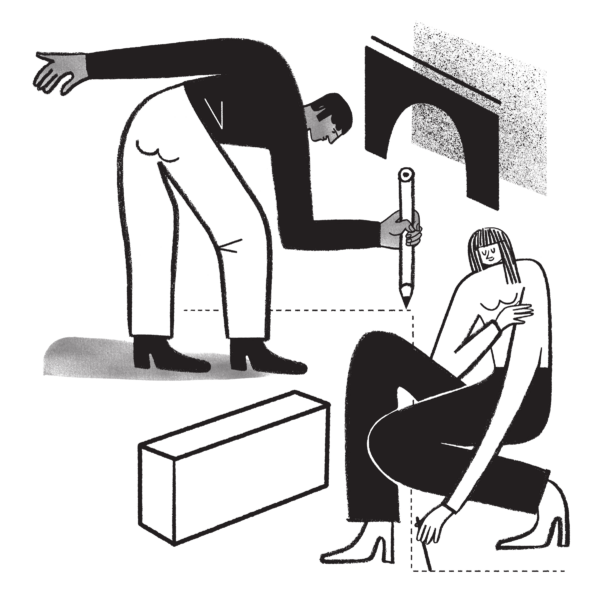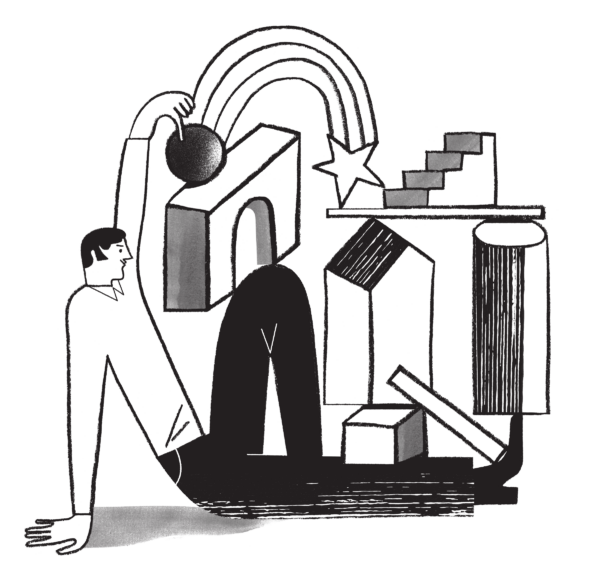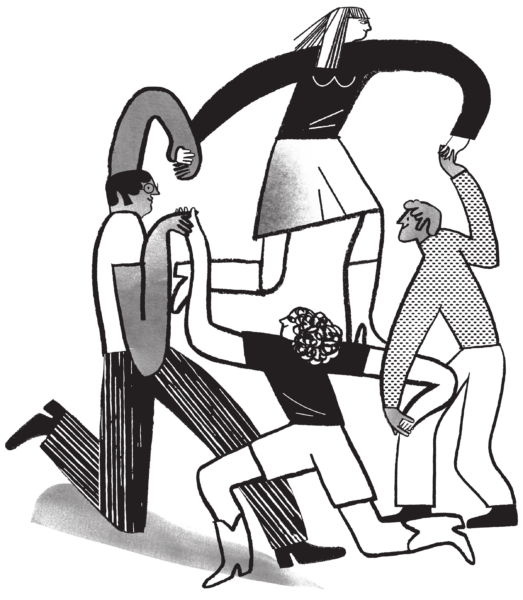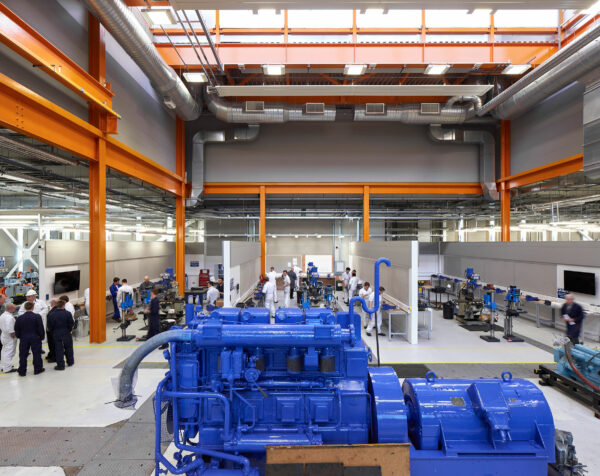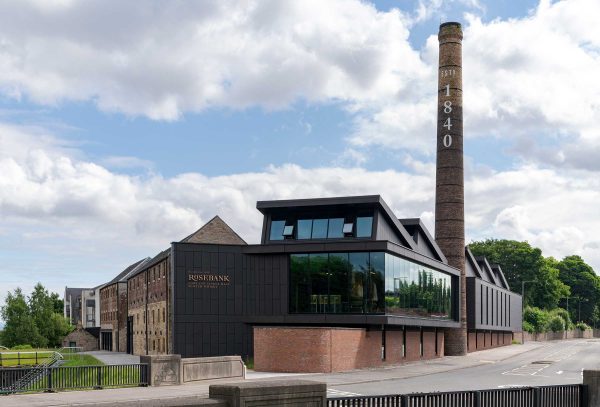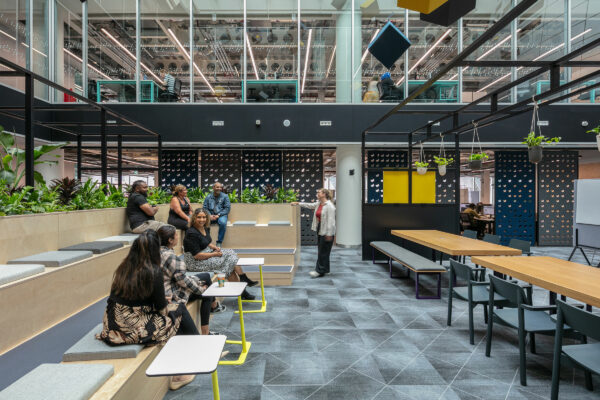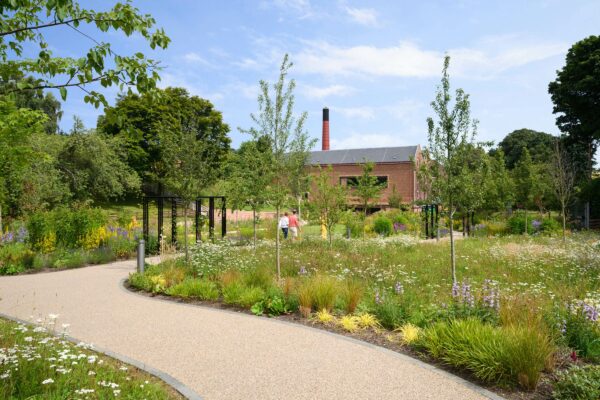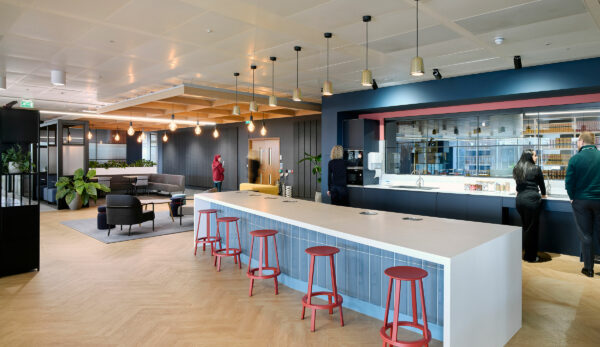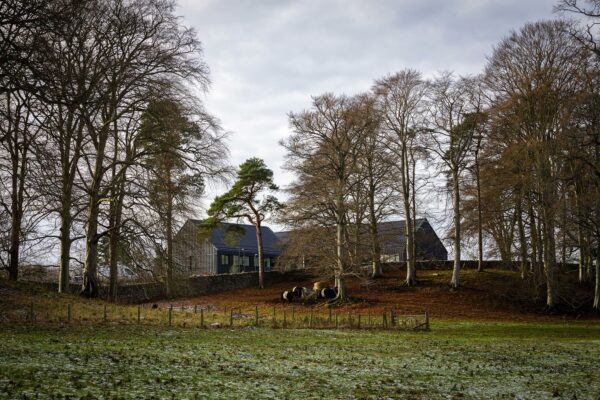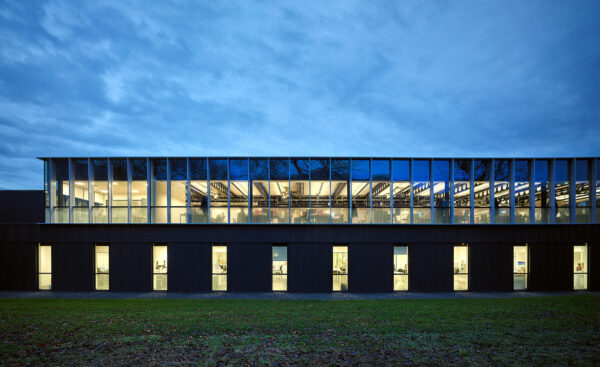Consultancy
To inform and learn from our designs with rich data & insights from the people we create for. Having a transformative impact, from inception to completion, and beyond on every project.
The unique component in all our projects is the people involved, from the clients we collaborate with all the way through to the people who will encounter our buildings and spaces, in passing or as part of their wider community. We like to get under the skin of what it is that these people need and want from the buildings and spaces we design. We use our skills as Strategic Consultants to pull out not only the raw data required to make a successful project but also the potential human impact of what we create and design.
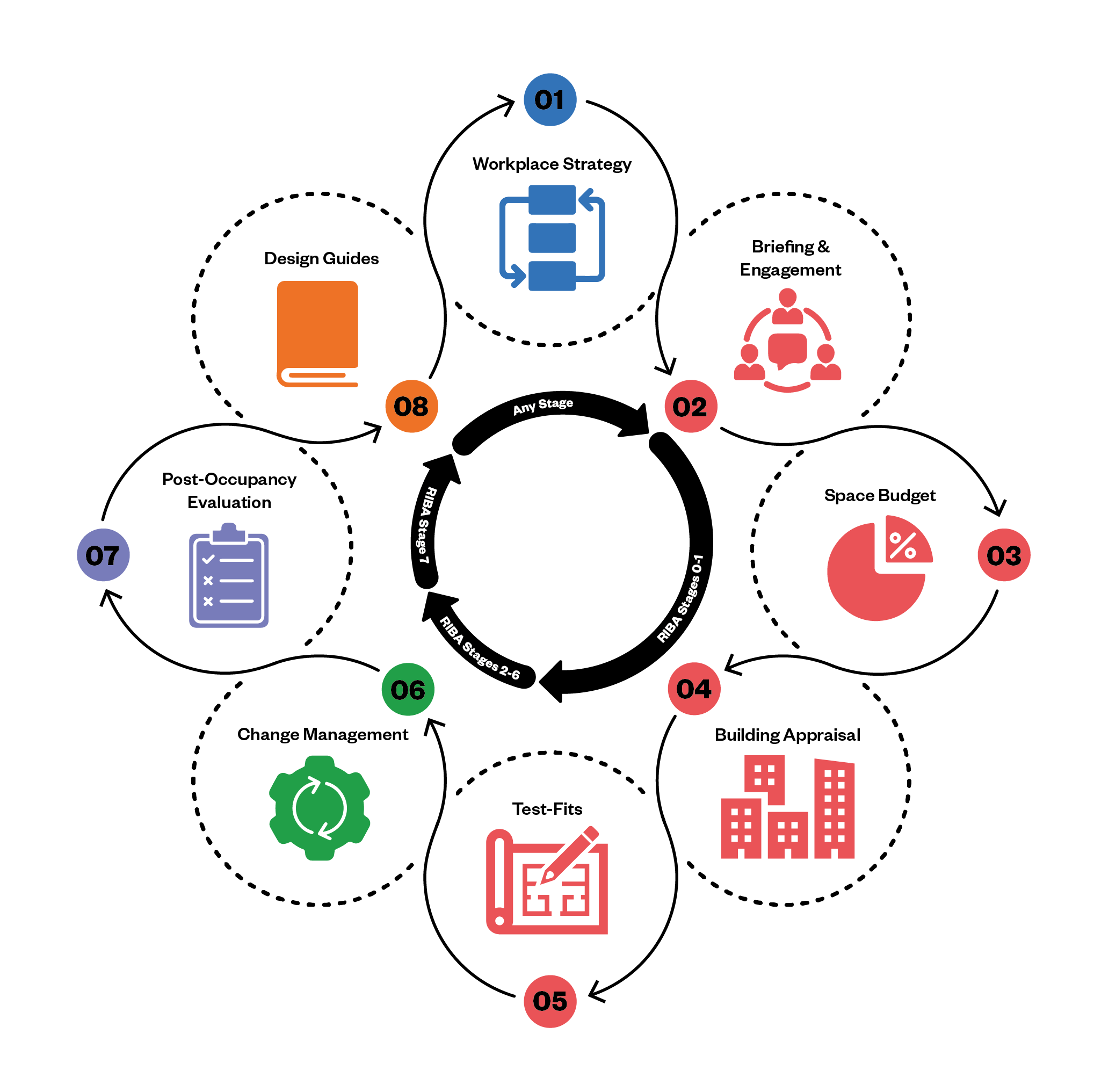
Find out more about our expertise by clicking on the services below. Or get in touch with our team – email Gillian Stewart at g.stewart@mlaarchitects.co.uk
Workplace Strategy takes a comprehensive approach, addressing not just the physical space but also the people, processes, purpose, and environmental impact. While many of our services can help tackle these elements within a space, a broader strategy is often needed to create a cohesive, seamless experience across an entire estate or organisation.
Our expertise helps you align these elements to ensure your workplace supports both operational efficiency and employee well-being, while considering the overall impact on the planet. Contact us to explore how our holistic approach can elevate your workplace strategy.
Our key principles for a holistic design approach are understanding the people, culture and brand of an organisation; their work patterns, processes and tasks; their experience and tech requirements; which shape the emerging place – influencing the overall purpose of the workplace and its impact on the planet.
We offer tailored engagement methods, including:
- Briefing & Visioning Workshop: A collaborative session to define a unified project vision and set the direction for our design team.
- Interviews & Engagement Workshops: In-depth discussions with departments and staff to understand workflows, culture, and spatial needs.
- Questionnaires & Observational Studies: Gathering insights on operations and behaviours to inform space requirements.
- Briefing Report: A comprehensive document summarising findings and outlining a detailed project brief.
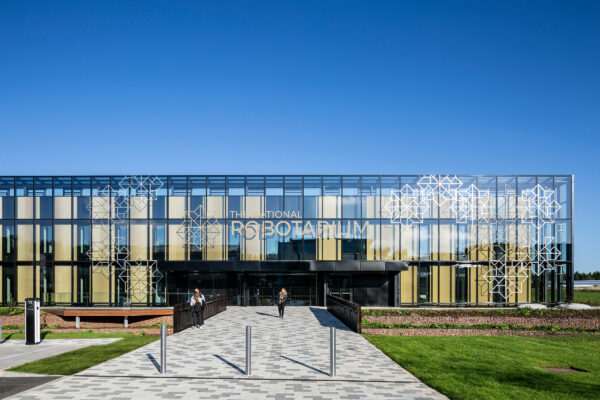
The National Robotarium
ViewOur building appraisals provide valuable insights into the quality and potential of both current and prospective properties, empowering clients to make informed decisions. We assess key factors such as building efficiency, circulation, space quality, and potential design challenges to help you evaluate your options effectively.
Recognising that space is a significant investment, we aim to provide the critical information needed to guide strategic decisions for your estate portfolio. With a strong foundation in design, our consultancy team understands how spatial requirements impact both operations and the people who use them.
A space budget is a ‘scientific approach’ to establishing how much space is required as well as invaluable data that can support feasibility discussions. Clients will have confidence that we have considered all their space requirements and that our decisions around space are based on our diverse and in-depth knowledge within the industry.
Each space budget we create is tailored to the client’s unique organisational, estate and spatial needs. All the engagement we doing in Briefing & Engagement Stage is crucial in informing the space budget.
As part of the building appraisal process, we can produce test-fits for different building options or existing spaces. Test-fits are quick space planning exercises to test the space budget and understand the spatial flow within a floorplate. It’s important that the operational and experiential vision for the space is considered when reviewing the test-fits. We can provide our expertise on which option would be the best for your organisation’s vision.
Navigating change can be challenging for businesses. By involving your colleagues in the process, they feel heard and are better prepared to embrace and maximise the potential of the new space.
Our approach includes establishing a group of “Change Champions”—employees who act as liaisons between the design team and their colleagues. They play a key role in sharing insights from workshops and keeping their teams informed. We also collaborate with key departments like IT, HR, and F&B to ensure smooth integration across the project.
We create tailored programs for the Change Champions, typically throughout the construction phase, but can adjust to fit your organisation’s needs. Contact us to explore how we can support your change management process.
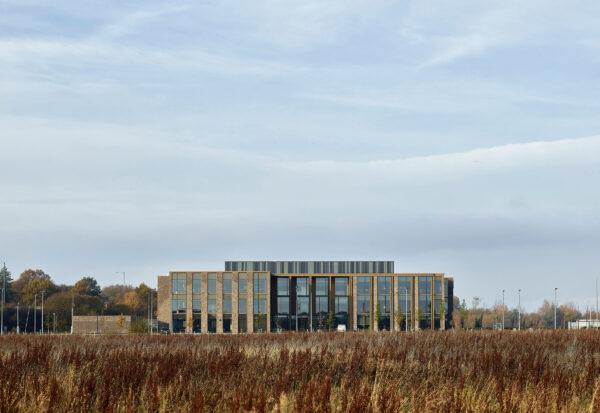
M&G HQ Building
ViewOur post-occupancy evaluations offer valuable insights into all aspects of a completed space, helping identify what worked well and what could be improved. For our clients, this feedback serves as a benchmark for future enhancements and provides essential input from colleagues who use the space daily.
Transformational Stories
We pride ourselves on creating projects for our clients that are truly transformational. The success stories we share showcase how we’ve listened closely during the briefing stages and carried those insights through every step of the design process. the results are spaces that support and transform the way that people live, work and interact on multiple levels.
By incorporating human-centric, anecdotal data, we bring our projects to life in meaningful ways. In today’s experience-driven world, capturing both individual and collective experiences adds invaluable impact for our clients, ensuring that every project goes beyond function to create memorable and lasting change.
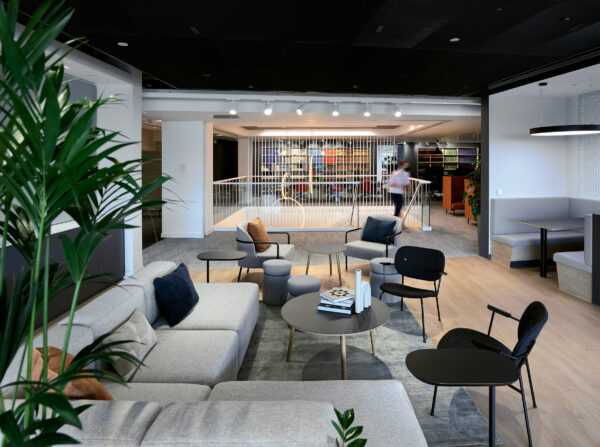
Brodies, Edinburgh
ViewEstablishing design standards across an estate is essential for creating a cohesive environment while differentiating various building types. We assist clients in developing a customised design guide that aligns with their organisation’s brand and goals. Tailored to your specific needs, the guide can cover elements such as:
- Space budgeting
- Space plans, zoning & neighbourhoods
- Spatial assessment criteria
- Key spaces & requirements
- General design features (branding, look & feel, furniture, IT/AV, etc.)
This comprehensive guide ensures consistency across all spaces, enhancing brand identity and improving the overall experience for users.
Interior Design
People-centred design transforming your space to positively impact your business and your team.

